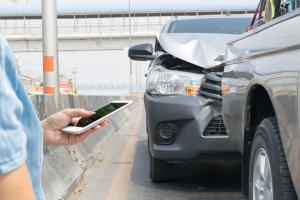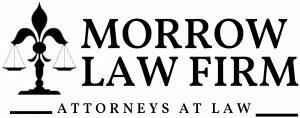
Legal Responsibilities for Loaning A Car in Louisiana
Liability for Accidents Involving a Borrowed Vehicle
In Louisiana, when a vehicle is involved in an accident, the insurance attached to the car typically plays the primary role in covering damages. This means that even if someone else is driving the vehicle, the car owner's insurance policy is the first line of defense for any claims that arise from the accident. However, determining the extent of liability can be more complicated depending on the circumstances of the accident, the driver's insurance, and whether permission was granted to use the vehicle.
William P. Morrow explains that “The concept of 'permissive use' is critical in these cases. If the driver had permission to use the vehicle, the owner's insurance will generally cover the damages caused. However, this doesn't mean that the driver is absolved of responsibility, and in certain cases, the driver’s insurance may also come into play if the damages exceed the limits of the owner’s policy.”
Insurance Coverage and Limits
Louisiana requires minimum liability coverage for all registered vehicles, which includes coverage for bodily injury and property damage. When a vehicle is loaned out, these coverage limits apply if the borrower is involved in an accident. For example, if the borrower causes an accident resulting in damages exceeding the policy limits, the vehicle owner may face out-of-pocket expenses, especially if there is no additional insurance to bridge the gap.
“In situations where the damages exceed the policy limits, the injured party may pursue compensation directly from the vehicle owner or the driver,” says Morrow. “This creates significant financial risks for both the owner and the borrower, which is why it’s important to thoroughly understand insurance policy limits and ensure adequate coverage.”
Owners should be aware that some insurance policies may have exclusions or limitations for drivers not listed on the policy. In such cases, loaning a vehicle could result in denial of coverage, leaving the owner financially vulnerable.
The Importance of Understanding 'Negligent Entrustment'
Another important legal concept that may arise when loaning a vehicle is 'negligent entrustment.' This occurs when the vehicle owner knowingly allows someone unfit to drive to operate the vehicle. If the borrower causes an accident and it is proven that the owner knew the borrower was unqualified to drive—due to issues such as a lack of a valid driver's license, intoxication, or reckless driving habits—the owner could be held liable for any resulting damages.
William P. Morrow emphasizes, “Negligent entrustment claims can expose vehicle owners to significant liability, even if they were not present during the accident. Owners must exercise caution when deciding who to lend their vehicles to, especially if the driver has a history of unsafe driving behavior.”
Steps to Take After an Accident
If a vehicle owner finds themselves in a situation where the borrower of their car has caused an accident, it is crucial to respond appropriately. First and foremost, the accident should be reported to both the insurance company and the police. Cooperating fully with the insurance company’s investigation can ensure that claims are handled properly and that coverage is applied in accordance with the policy.
In addition to dealing with insurance, there may be legal considerations to navigate. The injured party may file claims not only against the borrower but also against the vehicle owner, especially if the damages are severe. In these instances, it is essential to seek legal counsel to protect one’s rights and interests.
“Handling the legal implications of an accident involving a borrowed vehicle can be challenging,” says Morrow. “Vehicle owners should consult an attorney who can provide guidance on how to mitigate liability and address potential claims that may arise.”
Uninsured Drivers and Additional Risks
A situation that could further complicate the legal responsibilities of vehicle owners is when the borrower is uninsured. If an uninsured driver borrows a car and causes an accident, the vehicle owner’s insurance will generally be responsible for the initial coverage of damages. However, without sufficient coverage from the borrower’s side, the owner could face personal liability for the remainder of the damages or medical costs.
Morrow advises, “Before loaning a vehicle, it’s wise to verify that the borrower has their own valid insurance policy. Without this, the financial burden could fall entirely on the vehicle owner if an accident occurs.”
Legal Protections for Vehicle Owners
While the liability for an accident may initially fall on the vehicle owner’s insurance, there are steps that can be taken to reduce financial risks. One option is ensuring the vehicle is adequately insured with high liability limits and additional coverage, such as uninsured/underinsured motorist protection. This helps to cover situations where the damages exceed standard policy limits or where the borrower is not insured.
Additionally, consulting with an attorney to draft clear terms of agreement when loaning a vehicle can provide further legal protection. This agreement can outline the expectations and responsibilities of the borrower and help reduce misunderstandings or disputes in the event of an accident.
Conclusion
Loaning a vehicle to another person in Louisiana comes with a variety of legal and financial risks that vehicle owners should not overlook. The implications of an accident involving a borrowed vehicle can be significant, affecting both insurance coverage and liability. By understanding the legal framework, ensuring adequate insurance, and exercising caution when deciding who to lend a vehicle to, owners can reduce their exposure to potential claims.
The Morrow Law Firm, led by William P. Morrow, John Michael Morrow, Jr., and Stephen M. Morrow, offers guidance on a wide range of legal matters, including how to navigate issues arising from accidents involving borrowed vehicles. With the right preparation and legal insight, vehicle owners can safeguard their financial and legal interests.
Morgan Thomas
Rhino Digital, LLC
+1 504-875-5036
email us here
Visit us on social media:
Facebook
Distribution channels: Culture, Society & Lifestyle, Insurance Industry, Law
Legal Disclaimer:
EIN Presswire provides this news content "as is" without warranty of any kind. We do not accept any responsibility or liability for the accuracy, content, images, videos, licenses, completeness, legality, or reliability of the information contained in this article. If you have any complaints or copyright issues related to this article, kindly contact the author above.
Submit your press release

